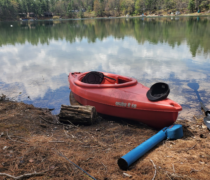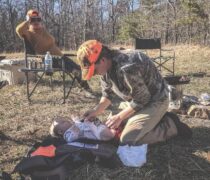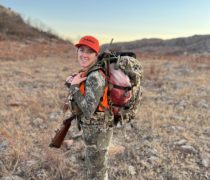We know. Reading the news can sometimes be depressing. But we’re here to keep you updated on some of the good news that’s happening in both conservation and the hunting and fishing world. Keep reading for a little emotional boost. (And if you hear of a good news story in your neck of the woods, please let us know about it!)
Giving Nature “Rights” in the West
First, a big shout out to the voters in Everrett, Washington. Thanks to them, the Snohomish River is now protected so the river can “regenerate and flourish.” Abi Ludwig with Standing for Washington, the group that advocated for the initiative, said the new law gives ecosystems “legal standing in the court of law.”

Anna V. Smith reports that Tribal Nations, including the Yurok and White Earth Nation, have adopted resolutions to enact similar “rights of nature” laws. And four years ago, two town councils in Colorado passed non-binding resolutions recognizing the rights of local rivers. For more information about this innovative attempt to help restore ecosystems, read the full story in High Country News.
Chinook Salmon Return to Northern California
Chinook salmon populations are returning to a restored 85-mile-long stream that winds its way through northern California. Reporter Amanda Bartlett cites a study from Ecosphere that shows that salmon born in Putah Creek have returned there to spawn. It’s giving new hope to a riverscape that was severely degraded after the construction of the Monticello Dam in the 1950s. A lawsuit in 2000 mandated that the river had to have year-round flows, monitored by state agencies, UC Davis scientists, non-profits, and members of the community.

Now, in addition to the chinook salmon, insects and songbirds have also returned to the area. Scientists think it could become a model for other dam-controlled waterways around the world. Read the full story in SFGate.
Corner Crossings Now Legal in Six States

Hunters and public lands advocates are cheering a recent court decision that determined “corner crossing” is a legal way to navigate federally-managed public lands. That practice is used to move from one parcel of public land to another where the corners meet between private parcels. Five years ago, four hunters from Missouri were prosecuted for using a ladder to cross at a corner that bordered on land owned by Fred Eshelman in Wyoming. He said the hunters violated the airspace above his ranch. According to David Willms, associate vice president of public lands at the National Wildlife Federation, the ruling affirms that “you can’t close people out and prevent them from accessing these public lands. The momentary incursion into the airspace doesn’t constitute a trespass.” Read more about the court’s decision in Field & Stream.






